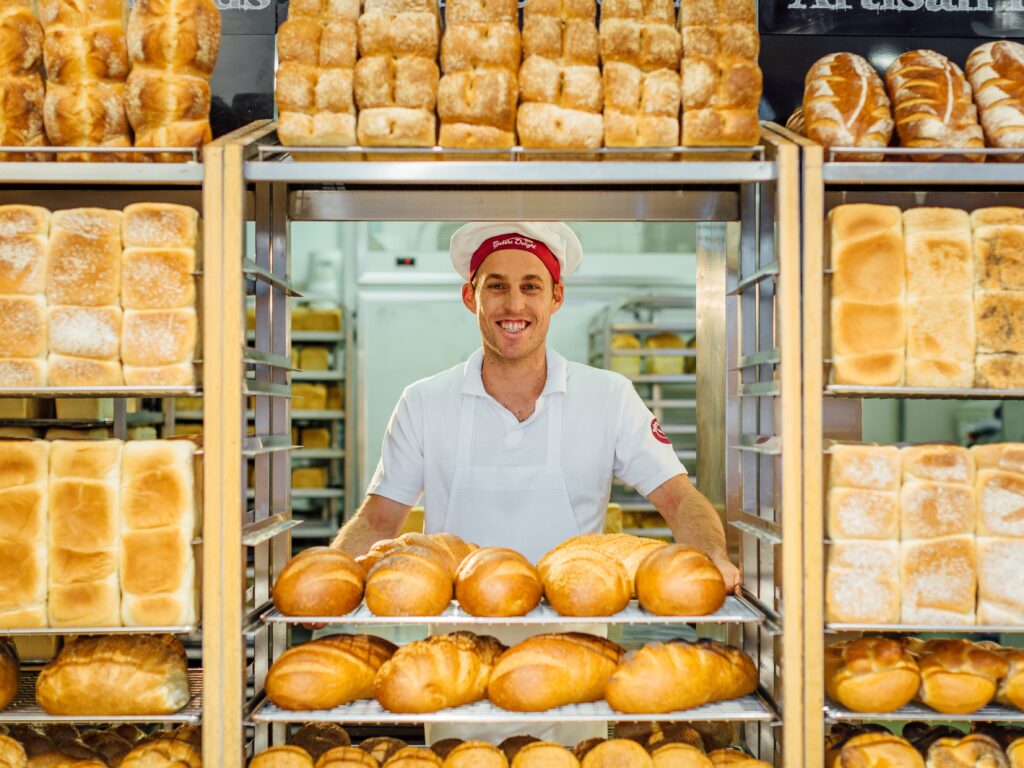
Sites, store formats and speciality products – how Bakers Delight is competing with supermarket price wars.
Bread is one of the five to 10 key items that drive consumers to shop. But where are they spending their dollars?
In Artisanal Bakery Product Manufacturing in Australia August 2016, a report from IBISWorld, the author suggests “individual franchisees cannot compete with supermarkets on price, marketing capabilities or customer patronage. They are also negatively affected by shorter opening hours and, often, less central locations. To survive, franchisees will need to focus more on premium products such as artisanal breads and specialty cakes.”
David Christie is the general manager of Bakers Delight. While he sees the bigger, price-driven competitors as an age-old challenge, he is confident that franchises can sustain their place in the market.
“There’s no doubt there is a challenge from supermarkets, they are after our market but that’s business. They have been competing directly ever since our inception.
“Price is definitely not something we compete on, that’s not our space and we have no interest in ever competing on price.
“The good sense of this strategy was born out when supermarkets dropped their prices to $1 for a loaf, then to 85c, and that has had next to no impact on our sales of comparable products. In fact sales of white block have increased.
“A price war is not a segment we play in. We’re better at premium.”
Christie says the answer is identifying competitive advantages that set Bakers Delight apart, such as the ability to be nimble in the market, have smaller format bases and a clear and complete focus on one market segment.
“Other competitive advantages are passionate owners on site every day talking to customers – that’s a huge advantage.”
Competitive advantages for franchisees
Location and convenience are important, he says, and the benefit of an established franchise chain is experience with this element of retail.
“Traditionally we’ve been quite good at picking locations, either on premium strips or in centres at the entrance to a supermarket. It’s been core to our business.
“Giving franchisees the right tools and right reports and right guidance to best cater for the tastes of their local community is essential,” says Christie.
“At our core we aim to be the local baker in every single community.”
Improving efficiencies will help franchisees minimise costs; the franchisor can influence aspects of the business such as rent, equipment and the systems and processes.
“Franchisors need to fight hard for the best possible terms for the franchisee and be prepared to walk away from a site if the economics do not stack up,” says Christie.
“We try and secure the best possible lease deal and contributions from the landlord. As a vertically integrated franchisor, we always strive to provide products at the best possible price and quality.”
Christie says “Retail generally has been quite volatile. We’ve had a number of years of great growth, some periods when it’s been stagnant.
“As a business, you have to clear up what your strengths are, what sets you apart for the customer and how you deliver.
“There’s a big opportunity in the bread space, and a lot of our competitors are very big and have big budgets and large businesses behind them.
“The trick is to stay two to three steps ahead, find out what the consumer will want and invest in the resources and tools to deliver that.”
Interested in Bakers Delight? Find out more about becoming a franchisee.

